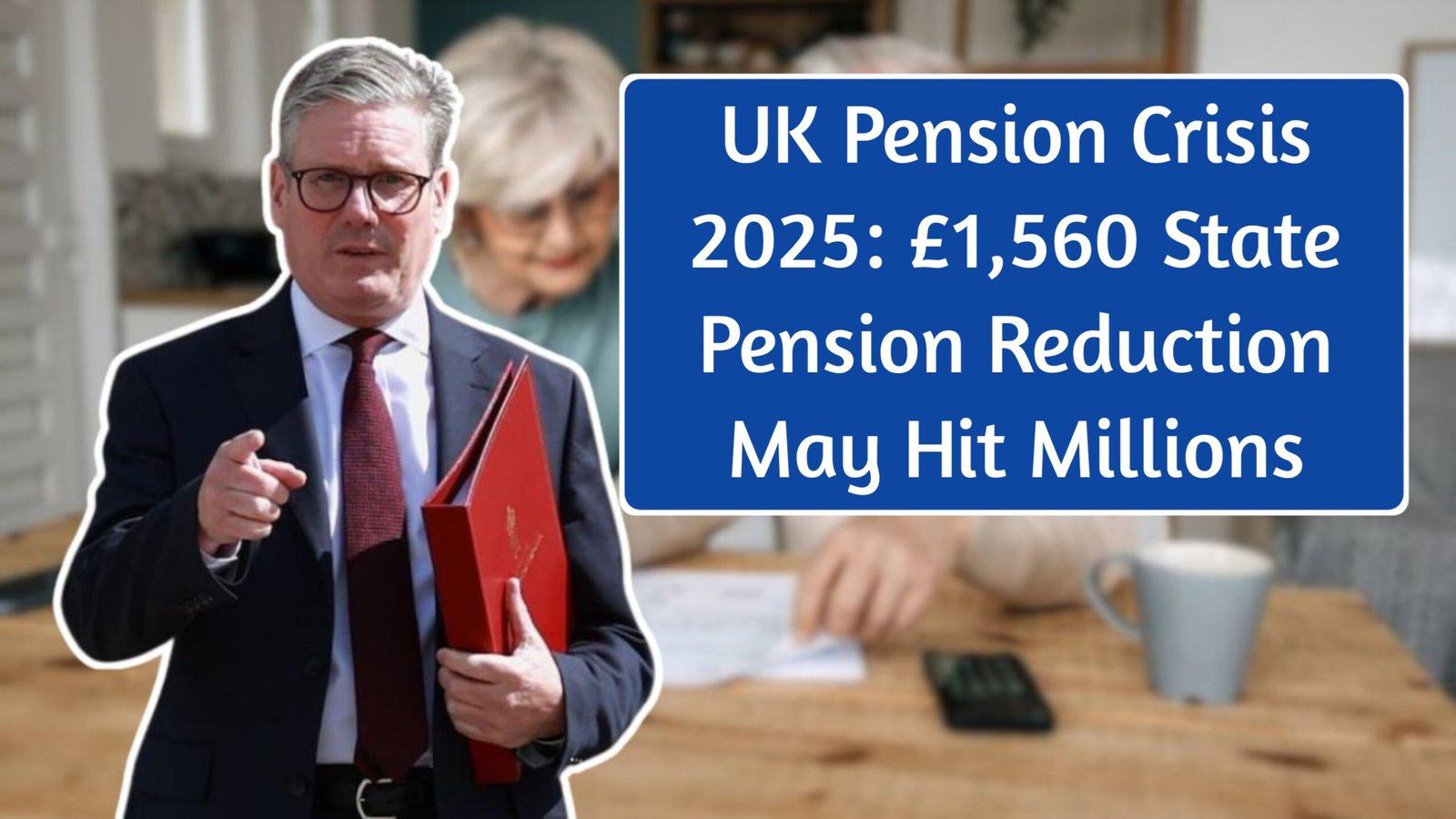The UK Pension Crisis 2025 refers to a potential reduction of up to £1,560 in the annual State Pension for millions of retirees. Rising inflation, budget adjustments, and economic pressures have placed strain on government pension schemes. This could lead to significant income loss for pensioners, many of whom already struggle with living costs. Experts suggest that without reforms, the financial stability of retirees will be at risk, forcing many to depend on savings or private pensions to maintain a basic standard of living.
why is the state pension being reduced
The reduction is linked to government efforts to balance the budget amid economic challenges such as inflation, high public debt, and an ageing population. According to financial analysts, the cost of funding pensions has risen sharply due to longer life expectancy and increased claims. Additionally, global market instability has affected investments that support pension funds. As a result, the government is considering adjustments, including lowering annual payouts, to keep the system sustainable in the long term.
who will be affected the most
Retirees who rely solely on the State Pension will be the most affected by the proposed £1,560 annual reduction. Many pensioners have limited savings and depend on this income for essential expenses such as housing, utilities, and food. Low-income households, particularly those without private or workplace pensions, face the greatest financial hardship. According to early projections, around 12 million pensioners could experience reduced payments, with older individuals and those in rural areas at higher risk due to limited access to supplemental income sources.
how much do pensioners currently receive
Currently, the full new State Pension provides up to £11,502 annually, or around £221.20 per week for eligible retirees. However, this amount is based on a full National Insurance contribution history, meaning not everyone receives the maximum payment. If the proposed cut of £1,560 is applied, the annual amount could fall to around £9,942. This would represent a significant drop in income for retirees, especially considering rising energy bills, food prices, and healthcare costs in the UK.
what are experts saying about the crisis
Financial experts and retirement specialists warn that the reduction could push more pensioners into poverty. According to the Centre for Ageing Better, even small decreases in pension income have severe effects on living standards for older adults. Some argue that the government should explore alternative solutions such as tax adjustments, improved pension investment strategies, or phased increases in retirement age. Others suggest boosting savings incentives and encouraging workplace pension contributions to reduce reliance on the State Pension.
potential government response
While no official confirmation has been issued regarding the £1,560 reduction, government representatives have hinted at possible pension reforms in 2025. These may include changes to the triple lock system, which ensures annual pension increases based on inflation, earnings growth, or 2.5%. Critics argue that altering this policy could worsen financial insecurity for retirees. The government is expected to release further details in upcoming budget statements, but uncertainty remains high among pensioners and advocacy groups.
how pensioners can prepare
Experts recommend that retirees review their financial plans and consider alternative income sources. For those still working, increasing contributions to workplace pensions or private savings accounts may help offset potential losses. Pensioners are also advised to check their eligibility for additional benefits such as Pension Credit, housing support, and council tax reductions. Seeking financial advice early can provide tailored strategies to safeguard income and manage rising living costs in the event of reduced State Pension payments.
what this means for the future of retirement
The UK Pension Crisis 2025 highlights broader concerns about retirement security in an ageing society. As life expectancy increases and economic conditions remain volatile, sustainable pension policies are essential. Future reforms may include raising the retirement age, introducing flexible payment schemes, or linking pensions more closely to contributions. The debate also raises questions about the balance between government support and individual responsibility for retirement planning, signalling a potential shift in how pensions are funded and delivered.
